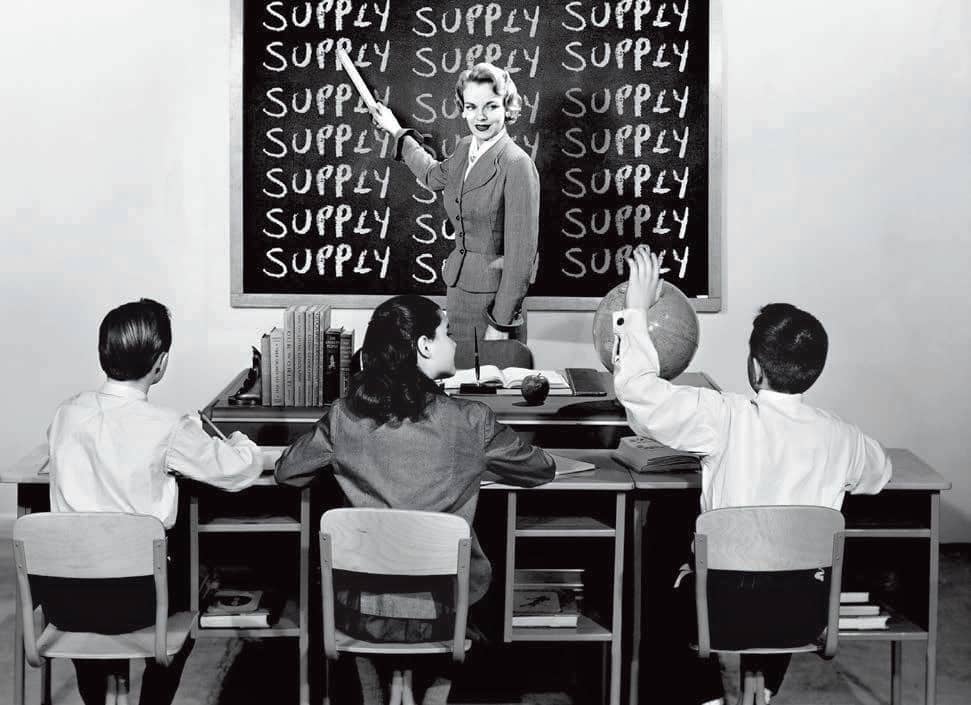The System: Eric Levitz

The 2008 financial crash ripped a giant hole in the incomes and wealth of Americans, limiting their ability to afford everything from big-ticket purchases like cars to their rent. The government declined to fill that hole in deference to a superstitious fear of deficits. This kept many millions of U.S. workers on the economy’s sidelines and myriad industrial facilities underutilized. For years, America’s capacity to produce goods and services exceeded consumers’ ability to pay for them.
This was a tragic state of affairs for the U.S. economy but, in some respects, a convenient one for American liberalism. Since the days of LBJ’s Great Society, liberals’ reform ambitions have largely focused on demand-side policy. The Affordable Care Act effectively gives Americans more money to spend on medical services through insurance subsidies. Food stamps give low-income households more money to spend on groceries. Social Security increases seniors’ disposable income.
In a demand-constrained economy, these kinds of policies are free lunches: Since there is spare productive potential, putting cash in people’s pockets not only benefits them directly but also aids the broader economy, as higher consumer spending encourages growth.
Relatedly, in an economy with relatively low inflation—like America’s from 2009 through 2020—the government need not offset new spending with taxes in order to keep prices from shooting through the roof. And that too was very convenient for liberals, who are perennially tasked with reconciling their movement’s expansive vision for the welfare state with Americans’ aversion to higher tax rates.
この記事は New York magazine の January 02, 2023 版に掲載されています。
7 日間の Magzter GOLD 無料トライアルを開始して、何千もの厳選されたプレミアム ストーリー、9,500 以上の雑誌や新聞にアクセスしてください。
すでに購読者です ? サインイン
この記事は New York magazine の January 02, 2023 版に掲載されています。
7 日間の Magzter GOLD 無料トライアルを開始して、何千もの厳選されたプレミアム ストーリー、9,500 以上の雑誌や新聞にアクセスしてください。
すでに購読者です? サインイン

'We're Running Out of Mansions'
How The Gilded Age makes absurdly low-stakes period drama into must-watch television.

THIS SUMMER WE'RE EATING IN GROCERY STORES
They're more affordable, more flexible, and a lot more fun than restaurants right now. HERE ARE THE 65 BEST SPOTS TO GET STARTED.

What a Cosmetic Chemist Buys at the Drugstore
WE ASKED Dr. Julian Sass, the creator of a viral sunscreen database and an expert fact-checker of product claims, about the most effective items he routinely picks up.

Alfargo's Marketplace
On a recent Friday night, shoppers (and sellers) parsed through vintage pieces at the pop-up menswear bazaar held at NeueHouse.

Attention Seeking
Amid a growing awareness of our dwindling ability to focus, people are trying to reverse the damage, with mixed results.

The Emancipation of Addison Rae
The TikTok star's debut album breaks with the past.

Play on Words
A Eurydice production that’s lush with language.

Appealing Pieces for Petite Balconies
Designers and tasteful apartment dwellers share the furniture that has made their tiny outdoor spaces worthy of spending time in.

E. JEAN CARROLL'S UNEASY PEACE
IN THE YEAR AND A HALF SINCE DEFEATING TRUMP IN COURT FOR THE SECOND TIME, SHE'S WRITTEN A NEW BOOK—KEPT SECRET, UNTIL NOW—AND PLOTTED HER LEGACY.

Everyday People Brian Wilson and Sly Stone were musical innovators.That's where their stories diverged.
THE VAST MAJoRITY of humans alive now aren't old enough to feel the shell shock from the musical paradigm shifts of the 1960s.
